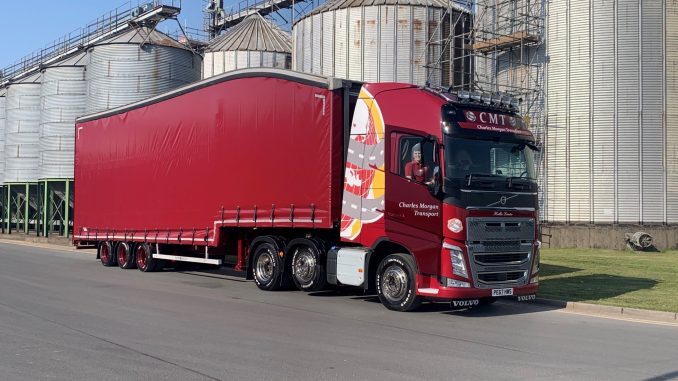By Harry Mottram: Hauliers going to the wall are sharply up as costs spiral, competition increases and the effects of Brexit, inflation, fuel price rises, interest rate hikes and labour shortages all create a perfect storm.
Chris Horner, insolvency director with Business Rescue Expert, said: “Like a lot of other sectors, the haulage and road transportation industry has had a rough time of it over the past few years. Their fuel costs have gone through the roof along with the rising energy costs every business has had to absorb as well as soaring inflation and interest rates eating into their profits instead of letting them reinvest them. Haulage firms that operate in the EU are also having to deal with the effects of Brexit which further hampers their ability to be competitive against rivals from any of the other 26 EU member states.”
In 2019 there were 282 hauliers who hit the buffers. During Covid lockdowns there was a drop in company collapses as the restrictions suppressed business but following the crisis in 2022 the number of insolvencies rose to 417 with 2023 seeing a further rise. The war in Ukraine has seen fuel prices rise by 23% last year – to give an idea to fill up an HGV in October 2022 was £467.50, compared to £340 in 2021 but in 2023 the cost has risen to around £550.10. In Birmingham Cross Transport failed due to rising costs calling in SFP in June but with overdue tax bills was forced to close this summer with non-preferential creditors receiving nothing.
Late payment is also part of the gloomy picture for hauliers with customers either going bust, entering administration or pleading poverty. Ian Carrotte of ICSM said: “As soon as there is a danger to cashflow such as a loss of a contract or big rises in overheads it is vital financial directors take action immediately. One major customer with holding payment for more than a month can cause a business to fold so ensuring credit terms are adhered to is important. ICSM always recommends that firms that see a big rise in costs due to interest rates, inflation and fuel prices should give themselves a credit audit. Act now and make cuts to ensure a business is viable before it is too late.”
Another factor has been the ongoing shortage of drivers caused in part to the job being unattractive to younger workers with the long hours and a lack of amenities on the road and Brexit seeing a drop in the number of drivers from the EU willing to work here. The delays, bureaucracy and higher costs in dealing with Europe have only had a negative effect.
Add to that the hike in interest rates and firms with large loans and overdrafts have seen dramatic rises in their banking costs. The repayment of Covid associated loans have also been a factor as the period of interest free payments has passed. Companies with large warehouses and administration centres have also been hit by the rise in energy prices – simply keeping the lights and heating on has become a much larger share of overheads. Cross Transport of Birmingham has gone into administration. The company, run by Dean Cross, was hit by a drop in trade and compounded by spiralling overheads which had hit the bottom line.
The economy hasn’t helped either with the cost-of-living crisis hitting household budgets which in turn has seen a fall in consumer demand. It has meant fewer goods being moved around the country as the economy flatlines due in part to the Government’s campaign to reduce inflation from double digits earlier this year to somewhere nearer to 5% by Christmas 2023. One casualty has been Charles Morgan Transport Malton and Full Sutton that went into administration in July as costs outstripped profits and cashflow dried up. The firm’s demise saw creditors turning up at the home of the owner according to media reports and also taking away goods from the depots to offset unpaid bills.
And there are sometimes completely unexpected reasons a firm can collapse such as fraud. Writing in Motor transport Chris Tindall reported: “A Burton-on-Trent haulage firm that failed last month was crippled by a host of problems, including Brexit, Covid-19 and an expensive fraudulent incident involving a customer, according to its administrator.” The fraud cost Freight Management European more than £100,000 and saw police from Germany involved in the case.
++++++++++++++++++++++++++++++++++
+++++++++++++++++++++++++++++++++++
ICSM CREDIT
For information on ICSM visit www.icsmcredit.com or call 0844 854 1850.
ICSM, The Exchange, Express Park, Bristol Road, Bridgwater, Somerset TA6 4RR. Tel: 0844 854 1850. www.icsmcredit.com. Ian.carrotte@icsmcredit.com

